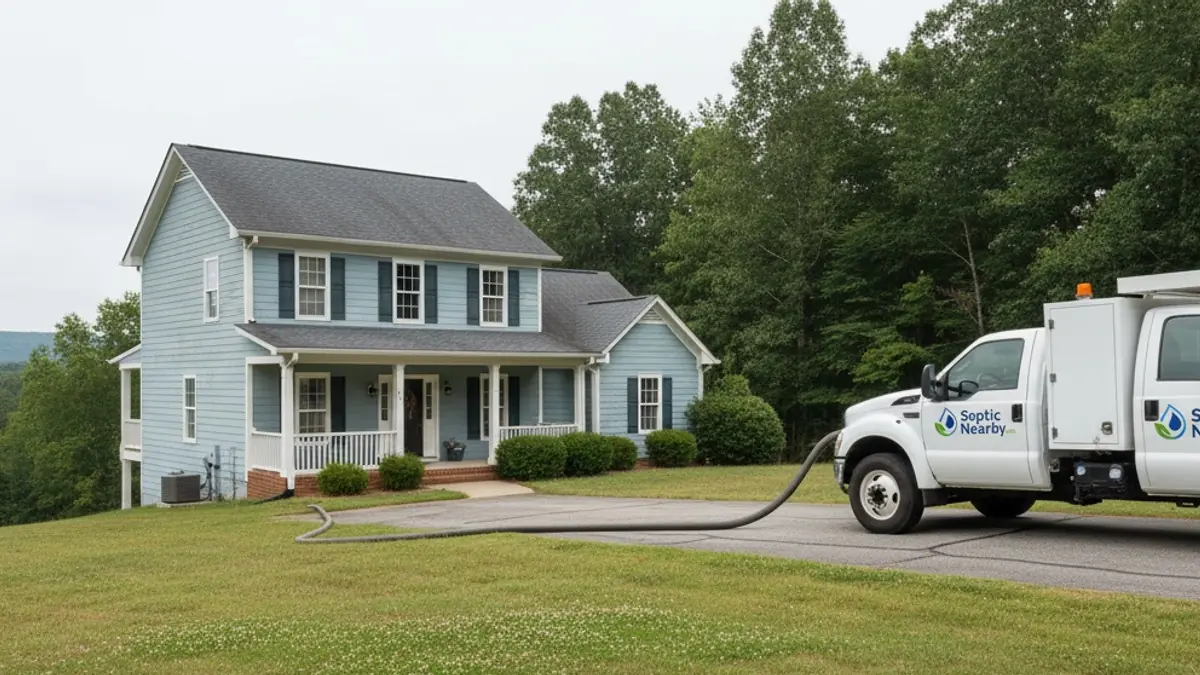Septic Pumping Services in Clarke County, GA
 Photo Illustrative
Photo Illustrative+1-470-9-SEPTIC
Operators available 7 AM - 9 PM
Licensed & Insured • No Obligation • Emergency Service Available
Cities We Serve in Clarke County
Local Septic System Factors in Clarke County
Understanding Your Septic System in Clarke County
Life in Clarke County offers a unique blend of experiences, from the vibrant, dense neighborhoods of Athens to the quieter, more spacious lots surrounding Winterville. For many homeowners here, particularly outside the city's sewer service area, that independence comes with the responsibility of an on-site sewage management system. Navigating this requires a grounded understanding of our local landscape—specifically, the soil beneath our feet.
Clarke County sits squarely in Georgia's Piedmont region, a landscape defined by rolling hills and its famous red clay. This soil is not a uniform blanket; it's a complex profile of layers developed over millennia. The topsoil might be a forgiving sandy loam or loam, but just beneath it often lies a dense, heavy clay loam subsoil. This geology is the single most important factor in how your septic system functions. The entire purpose of a drain field is to allow treated wastewater to percolate slowly into the ground. When that ground is composed of tightly packed clay particles, the process can be sluggish.
This is why a perk test (percolation test) is not just a regulatory hurdle; it's a fundamental diagnostic tool. It measures how quickly water is absorbed by the soil, and the results dictate the size and type of drain field a property can support. In many parts of the county, a conventional system works well, but in areas with particularly dense clay or a high water table, an impermeable layer can prevent proper drainage, leading to saturated soil and system failure. Understanding the specific hydrology of your property—how water moves across and through it, especially after our region's heavy rains—is critical for long-term septic health.
The development history of Clarke County also plays a role. Older homes built before modern regulations may have undersized or outdated systems that struggle to keep up with contemporary water usage. As Athens has grown, newer subdivisions on the county's fringe often feature more advanced system designs engineered specifically to handle the challenging Piedmont soil. Whether your home is a historic property near Five Points or a newer build out past the loop, the principles remain the same: the system's performance is tied directly to the soil, the local water table, and a consistent maintenance schedule. A healthy septic system is unobtrusive; a failing one, often due to saturated soil overwhelming the drain field, is an expensive and disruptive problem. This guide provides a local perspective on keeping that essential system running smoothly.
Frequently Asked Questions in Clarke County
Key septic regulations in Clarke County?
The Clarke County Board of Health's Environmental Health Division oversees all on-site sewage systems. A permit is mandatory for new installations and major repairs (like replacing a drain field), but not for routine tank pumping. All work must be performed by a state-certified installer.
Average pumping cost across Clarke County?
The cost for a standard septic tank pumping typically ranges from $325 to $650. The final price depends on the tank's size, its accessibility on the property (long hoses or difficult terrain increase cost), and the travel distance from the service provider's base, particularly for homes in the further reaches of the county.
How often to pump septic systems in the county?
The general recommendation is every 3 to 5 years. However, this can change based on local factors. Households with high water usage, garbage disposals, or more occupants should consider a shorter interval. Properties in areas with a high water table or slow-draining clay soils may also benefit from more frequent pumping to reduce stress on the drain field.
Weather and scheduling in Clarke County?
It's best to schedule routine maintenance and especially repairs during drier seasons, like late fall or early winter. Heavy spring and summer rains create saturated soils, making it difficult for the drain field to function and for heavy service trucks to access your property without causing ruts or damage.